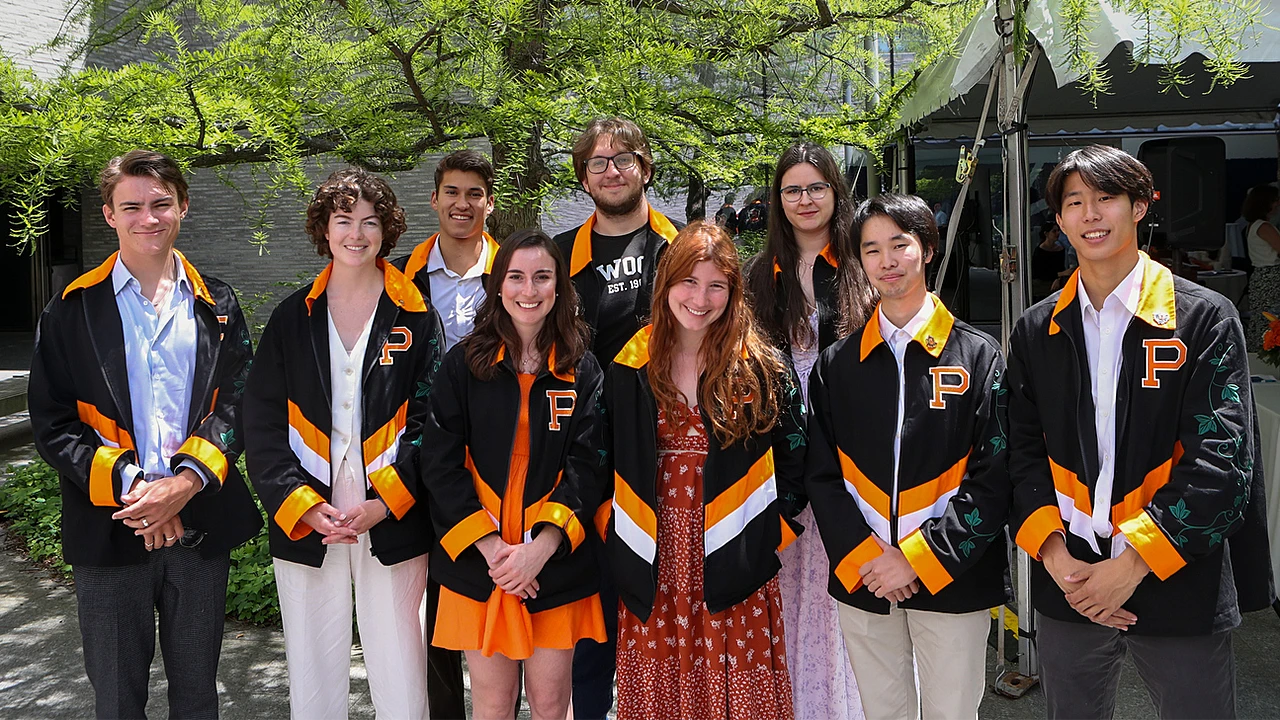Minor Program in Sustainable Energy
Program Overview
The future well-being of societies, the global economy, and the global environment will benefit greatly from collaborative research into renewable energy, alternative fuels, advanced energy conversion and storage systems, remediation of environmental degradation, technology transfer to developing countries, and prudent judgment on policies to support sustainable energy technology. Innovations and inventions require multidisciplinary approaches and entrepreneurship, as well as grounding in theory and practice, all topics that are not covered by a single department. The Minor Program in Sustainable Energy (the Minor) offers an integrated set of core and elective courses, introducing students to fundamental concepts in energy technologies and technological change, providing depth in specific fields of interest from specific energy systems to policy approaches that further sustainable energy use, exposure to laboratory practices and experiences, and setting the stage for further work in the field.
Questions?
If you have any questions about the Minor Program, contact Moira Selinka, Program Manager, Education and Outreach, at mselinka@princeton.edu or call 609-258-8456.
Goals for Student Learning
The Minor provides students who are interested in pursuing careers or graduate education in sustainable energy science and technology with the opportunity to:
- Gain an understanding of current and potential future energy resources, carriers, end users, technologies, and their impact on climate, the environment, and society.
- Develop the ability to analyze, design and develop innovative energy systems and technologies that support sustainable economic growth, energy security, biological diversity, and environmental harmony for life on Earth.
- Gain knowledge of how engineering, technology, economics and public policy shape energy systems and outcomes from a variety of perspectives.
- Acquire critical skills in conducting research and being an intelligent consumer of research in both coursework and a final independent research project in sustainable energy.
Prerequisites
No prerequisites are required to enroll in the Minor. However, students should be aware that some of the elective courses have prerequisites. Students are encouraged to consult the individual professors of those courses to discuss whether they have the appropriate background to handle the work.
Admission to the Program
Students may apply for the Minor in the spring of their sophomore year or fall of their junior year.
Program of Study
The Minor Program in Sustainable Energy consists of the following elements: five courses, a seminar requirement, a final independent research project or senior thesis focused on a sustainable energy topic, and presentation of research at a symposium in the spring of junior or senior year. A minimum grade point average of B- in the five courses is required.
Core Courses:
Students take one of the following core courses in their sophomore or junior year:
- MAE 228/EGR 228/CBE 228/ENE 228: Energy Technologies in the 21st Century
- ENE 202/ARC 208/EGR 208/ENV 206 Designing Sustainable Systems
The core course may not be taken on a P/D/F basis.
Elective Courses:
Students must take four additional courses related to energy systems, technology, and policy. Students may choose from a list of approved electives that is reviewed each year by the Minor director. The list is organized by the seven research foci of the Andlinger Center so that students can gain depth of knowledge in a particular area of sustainable energy, but students are free to choose any four courses from this list following these guidelines.
Guidelines for Elective Courses:
- Upon enrollment in the Minor, students will meet with the director or program manager to plan a coherent set of electives that complements their major and interests.
- Two of the four electives must be at the 300-level or above.
- One elective course may be taken on a P/D/F basis.
- One study abroad course may be taken as an elective with prior Program approval.
- Students may petition the Program for a course to be approved as an elective prior to the start of the semester. Elective petitions will not be accepted after the start of the semester or after the course has been completed.
- No more than two courses may be double counted toward a student’s major or another certificate or minor.
Seminar Requirement
Gaining knowledge about energy systems and outcomes from a variety of perspectives is an important goal of the Minor program. The Andlinger Center for Energy and the Environment offers monthly Highlight Seminars featuring talks on energy topics given by speakers in disciplines including engineering, technology, economics, and public policy. During their junior and senior years, students are required to attend a total of four of the Andlinger Center’s monthly Highlight Seminars* and write a short, half-page reaction paper for each seminar that should be emailed to the program manager.
*One seminar can be substituted for an energy-related seminar from another department.
Independent Research Project / Senior Thesis Requirement
Students must conduct independent research on a suitable energy topic, which can take one of the following four forms:
- a substantial part (e.g., a chapter) of their senior thesis, which topic must be approved ahead of time by the Minor director.
- a junior paper submitted to fulfill a departmental requirement; the topic must be approved by the Minor director ahead of time.
- a 10-15pp final report based on work done (at any stage of their undergrad career) during an Andlinger Center summer internship supervised by an Andlinger Center or Andlinger Center-affiliated faculty member. The supervising faculty must review and sign off on the paper as being of sufficient quality to satisfy an independent paper requirement (e.g., a JP).
- a 10-15pp independent paper supervised and approved by an Andlinger Center or Andlinger Center-affiliated faculty member, topic approved ahead of time by the Minor director.
Presentation of Research
Students must present their independent project/thesis research to faculty, administrators and fellow students at an annual symposium held in the spring either in their Junior or Senior year.
